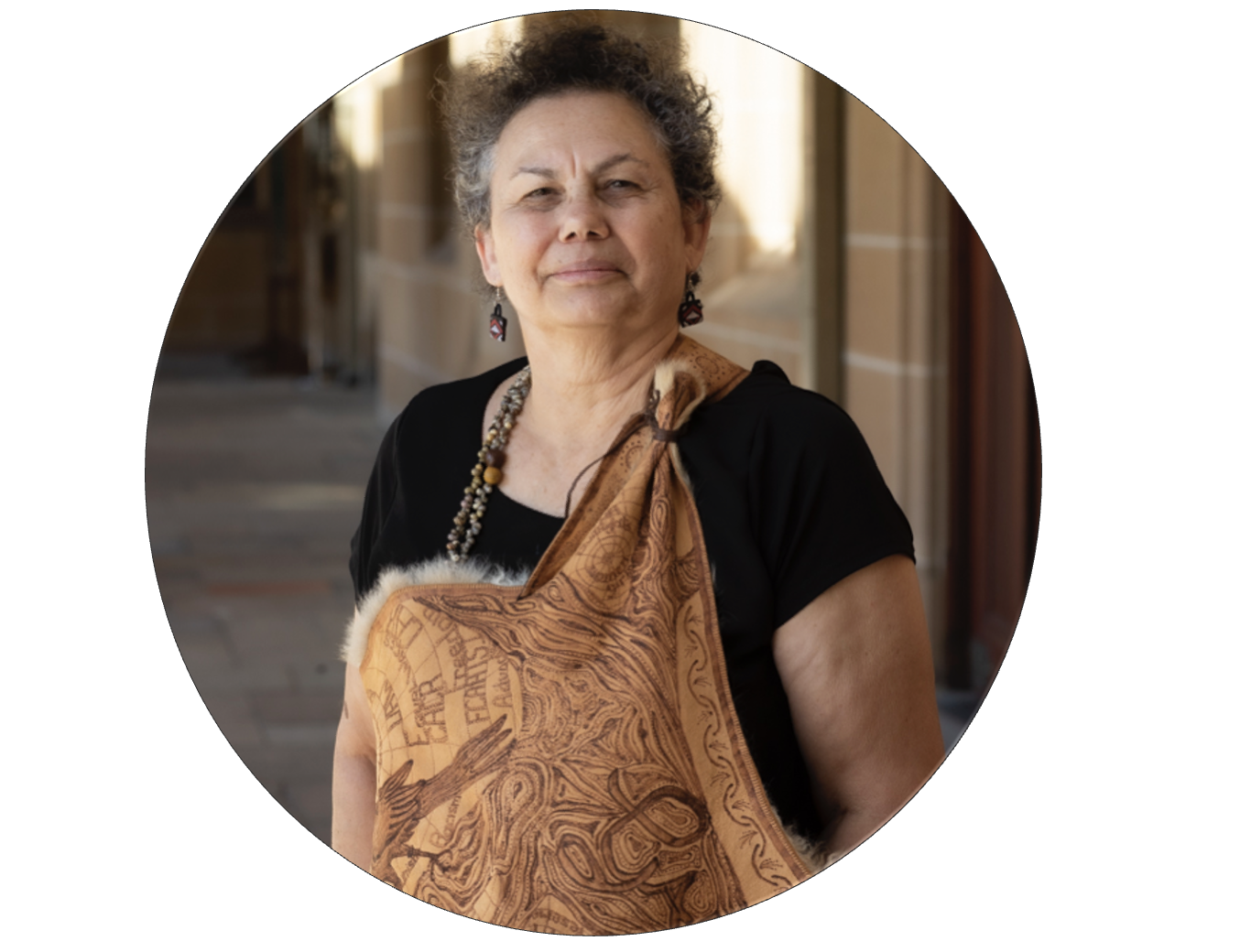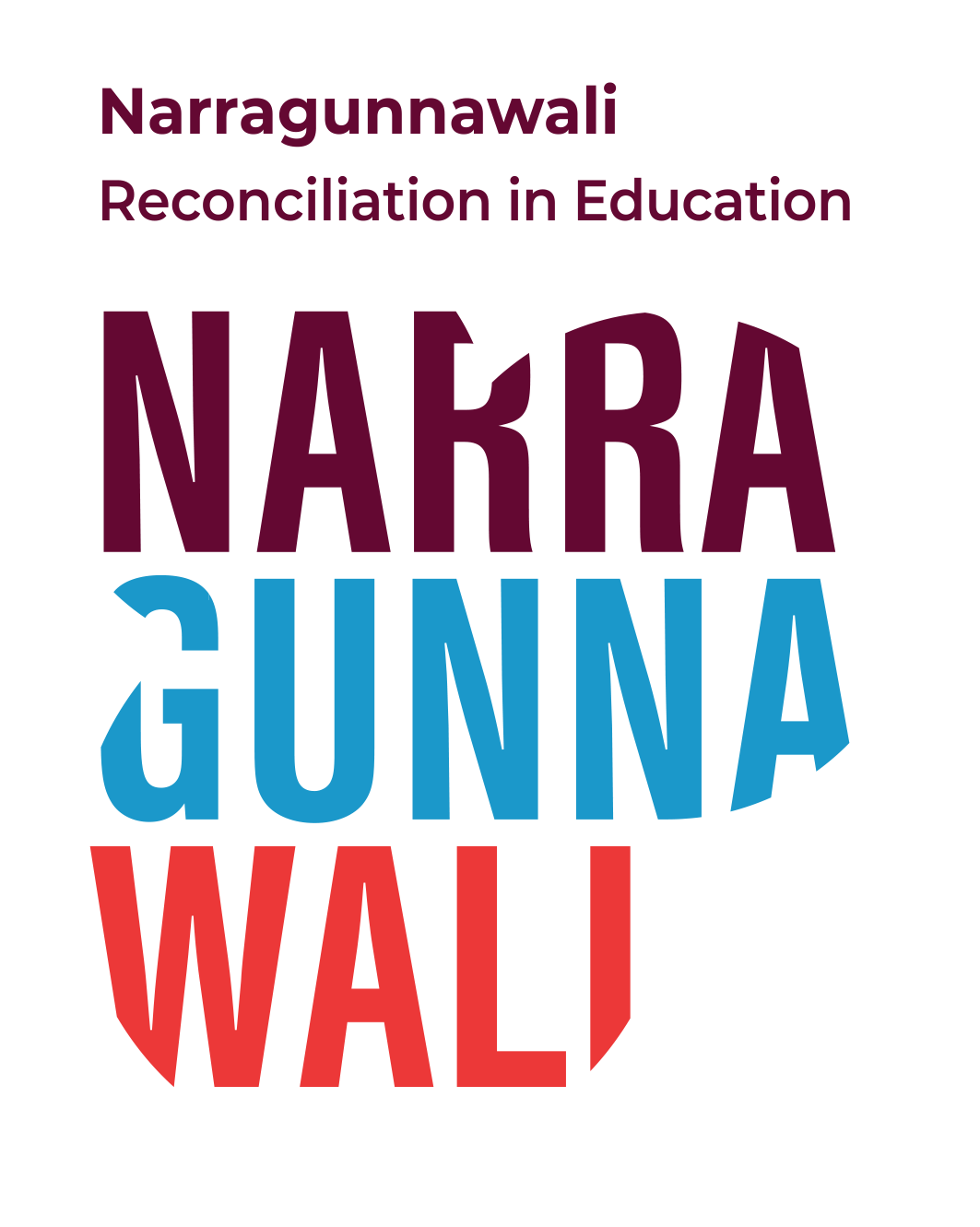Teacher Feature – Associate Professor Lynette Riley

Dr Lynette Riley is a Wiradjuri and Gamilaroi woman, and is currently a Senior Lecturer at the University of Sydney, School of Education and Social Work. Lynette has more than 40 years’ experience as a teacher and in Aboriginal Education and administration in primary schools, high schools, TAFE, state office and universities. She holds strong interests in Aboriginal and Torres Strait Islander rights, education, and wellbeing. Past student of Dr Riley’s, Reconciliation Australia's Genevieve Neich, sat down with Lyn to hear about all things reconciliation in education. This interview has been edited for length and clarity.
Could you start by telling us a little bit about yourself?
I'm a Wiradjuri and Gamilaroi woman from Western and North-Western New South Wales. Dubbo and Moree are my two home communities. I’m currently well into my 60s. I have seven children, and currently 11 grandchildren. I've always worked – I'm a primary school teacher, but from there, I've gone on to do lots of other things but my career has been served by circling around Aboriginal Education.
How exactly did you wind up within the space, in the role that you're currently in at the University of Sydney?
I’m a primary trained person, but my first placement was actually in a high school, because in those early days, no priority employment was given to Aboriginal teachers, as that could be seen as racist.
But then, the year I graduated, they decided to give priority but we had to go to schools with high Aboriginal populations. I was sent to Moree High School. What that experience taught me was what I didn't know. I spent a couple of years at Moree High, and then I went back and did some more training in Aboriginal Education specifically.
From there, I was asked to go into the NSW Department of Education head office, and help set up the first Aboriginal Education Unit. We wrote the first Aboriginal Education Policy back in 1982.
So I've worked in high school, I've worked in the state education office, I’ve worked in universities, I've worked at Tranby Aboriginal College, helping set up an Aboriginal adult literacy program, and I went home and actually taught in a primary school for a few years – the hardest job I've ever done; and I worked for TAFE across western NSW, and was Campus Manager for Dubbo for a couple of years. I've had a really varied career.
I moved across to the University of Sydney in 2006 and I've been here ever since. In the old Koori Centre, my job was to set up Aboriginal Education, and at the time we ran an Initial Teacher Education (ITE) program, training Aboriginal people to be high school teachers in history, geography and in Aboriginal Studies. One of the requirements, in taking the job, was that I had to do my PhD, and I think that was again one of the hardest job I've ever done. I didn't finish it until about 2017.
Now, I'm an Executive Director for Indigenous Studies and Aboriginal Education. That encompasses Aboriginal Education as part of the ITE program, and the Indigenous Studies Major. What we really encourage though, is for students to further their own learning afterwards.
As a past student of yours, I know how crucial ITE is in advancing reconciliation, but why is truth-telling at the tertiary level so important?
It’s vital. It’s imperative. We've got a lot of students that come from overseas and unfortunately, most students, even domestically, come through with very little Aboriginal Education, because their teachers haven’t had mandatory training.
Many teachers fall into the trap of thinking they only have to do Aboriginal Education if they've got Aboriginal students. But Aboriginal Education is for all students – it is appropriate teaching for those kids, totally, but it teaches you to be a good teacher, with skills that you can use across the board. It advocates that there's a number of ways of teaching, and that you have be adaptive, to be able to develop other skills and different styles of teaching, because you've got a diverse community and a diverse student pool.
And so, being able to direct ITE and Aboriginal Education students to platforms like Narragunnawali means that the material is there, and there’s no need to reinvent stuff – sometimes they just don't know where to go, or where to look, or what the support networks are out there, so we direct them to you.
What does reconciliation mean to you?
For me, it’s something for non-Indigenous community to understand and appreciate the impact of past and present policies and practices. And how that’s affected relationships with Aboriginal people. It means that while Aboriginal people are often willing to come to the party, they don't want to be responsible for leading the way because they didn't create this situation in Australia.
Reconciliation means there is a drive to really learn about Australia's history, with honesty, and truthfulness. It’s about understanding the long-lasting impact of what’s happened, not just in the past, because it's still happening today.
Often people like to refer to Australia as “post-colonial”, that of the past, but actually, it's still happening.
That's right. And the reason for that is because a lot of the systems and ways of operating are based on settler practices, which is still about not allowing Aboriginal people a voice and self-determination, which is distinctly colonial.
And so, as we work towards righting past wrongs, how best can teachers and educators foster reconciliation in the classroom?
I think one of the first things they can do is actually get to know their local Aboriginal community. Ask questions like:
Do I know my local mob? Have I studied and gotten to know them, their Clan groups and their Totems? Do I know which Country I’m on and do I know about the history of first contact? Do I understand the cultural practices in that community? Is it a Matrilineal or Patrilineal Nation group? Who are the key players and what are the key cultural sites? Have I looked at the statistics of Aboriginal people in that community? What do I actually know?
Start there. When you educate yourself about your local community, then you can start to see how it actually works, and how all those Nations are interlocked and connected across Australia. Commencing where you live is a good place to start.
The NSW Aboriginal Education Consulting Group (AECG) has professional development opportunities for new teachers, or if you've been a school for 20 years and still don't know the local community, that orientation can appeal to everyone. It’s for everybody.
Do you have a favourite resource you use with your students in order to encourage reconciliation with your students?
I think one of the best activities is the Evaluating Resources activity, which actually gets people thinking.
It teaches you how to be a good librarian, and how to select age specific or discipline specific resources. Often at the beginning, people don't know what they’re looking for. But having examples of what is culturally appropriate, but also examples of racist language to contrast, can be helpful at the start.
I remember once giving an Aboriginal teacher trainee his favourite book to review, one about an Aboriginal man, written by a non-Indigenous person. And there’s this perspectival shift that happens, when people analyse stories told through a white lens.
The comment I get most often at the end of the activity is “I'm looking at resources through totally different eyes.” And you know what? You can still use the resource, you can still like it, but you learn how to use it in a different way.
Read more about Lynette’s career and research here.
Lynette has recently co-created a series of Wiradjuri language workbooks with her sister her sister Diane Riley-McNaboe for Aboriginal children in permanent foster care, that can be used by children and their carers, families, and teachers. These books are available online for free via SBS Learn. Read more here.
-
18 Apr 2024NATIONAL RECONCILIATION WEEK 2024 CURRICULUM RESOURCES
-
18 Apr 2024Teacher Feature – Sherri Bryers, Tasmania
-
18 Apr 2024Civil Discourse: Post-Referendum for schools


